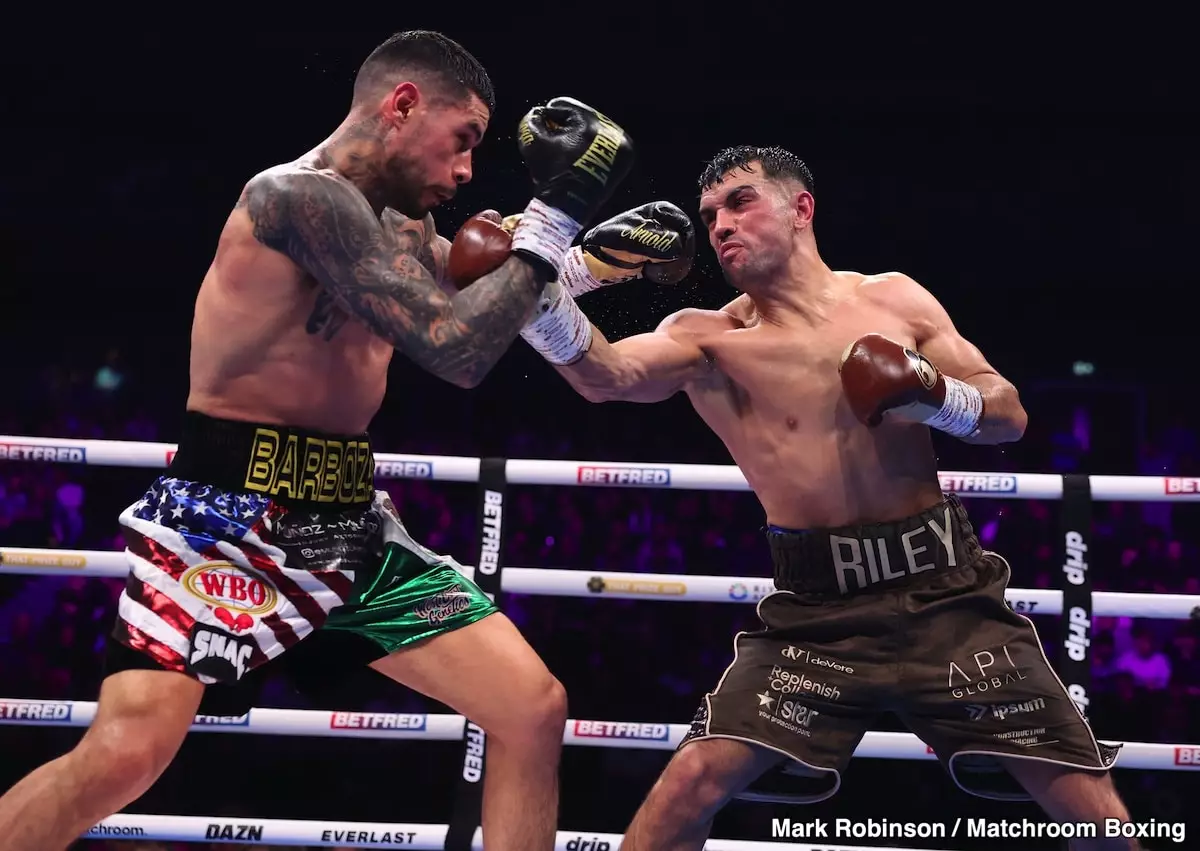Manny Pacquiao, a name that echoes throughout the annals of boxing history, is making headlines once again at 46 years of age with a return to the ring. While the debate rages on regarding this audacious comeback, former champion and current trainer Jamie Moore finds himself embroiled in a unique dilemma. As the mentor to rising contender Jack Catterall, Moore grapples with the conflicting desires of wanting his fighter to have a shot at greatness while respecting the legacy and risks associated with facing a figure like Pacquiao. It’s a scenario that poses important questions about aging athletes in combat sports and the motivations that drive them back into the unforgiving ring.
Moore’s candid admission about his discomfort with Pacquiao’s return is telling. He recognizes the inherent dangers of boxing, particularly for an athlete who has dedicated his life to the sport but is now past his prime. Pacquiao is, after all, a living legend, revered for his achievements and fighting spirit, but Moore is not alone in fearing for his health. Could it be that the sheer bravado and tenacity that made Pacquiao a titan of the sport have betrayed him as he attempts to regain relevance in a young man’s domain?
Contours of Dilemma: History vs. Ambition
The complexity of Moore’s position reflects broader themes within boxing. He expresses a desire to guide Catterall toward a world title, yet he can’t shake the respect and concern he feels for Pacquiao, a fighter who has brought so much to the sport. The juxtaposition here is stark: on one hand, it’s about ambition and glory for young fighters like Catterall who are clawing their way to the summit, while on the other is a cautionary tale about what can happen to champions as they age.
If Pacquiao manages an improbable victory over Mario Barrios—an outcome Moore himself doesn’t believe will happen—it opens a floodgate of questions. Does a win signal that Pacquiao remains a formidable force, or does it serve more as a harbinger of danger for himself and young contenders? Moore’s anxiety about positioning Catterall in the ring with Pacquiao underlines a larger issue within boxing: the ethics of matching young talent against seasoned warriors who are potentially in decline.
The Price of Fame
Catterall, like many aspiring boxers, would undoubtedly relish the chance to face a legend. The glamour of such a matchup is undeniable; it could elevate his status overnight. But Pacquiao’s possible return, fueled by dreams of titles and financial incentives, raises uncomfortable questions. Would it be wise for a 46-year-old fighter, under the bright lights and high stakes of a championship fight, to engage a hungry contender who’s eager to make his mark?
Fans and analysts might speculate on whether the weight of his past success will empower Pacquiao or lead to vulnerabilities that can be exploited by a young, relentless fighter. If a title shot against Pacquiao does arise, will it serve to legitimize Catterall’s skills, or will it merely tarnish the legacy of a champion who has already done so much for the sport?
A Shift in the Landscape
The potential for Pacquiao to shift his focus toward lucrative bouts against younger stars like Tank Davis adds another layer of intrigue to this scenario. If he were to win against Barrios, the appeal of large paydays against an elite athlete might overshadow the risk of defending against less recognized talent. This raises the question of whether boxing is driven by honor and legacy or merely by financial gain and celebrity.
Moore’s posture suggests a thoughtful approach in an era where fighters, promoters, and audiences grapple with the ethos of the sport. Can we draw a line between protecting the fighters we admire and nurturing the next generation? If Catterall and Pacquiao were to share the ring, would that fight be remembered for its historic significance or the potential consequences for both athletes involved?
In a sport defined by its brutality and toughness, the motivations behind such high-stakes battles deserve deeper scrutiny. Pacquiao’s image as a warrior may blind some to the real dangers he faces, while trainers like Moore are left to navigate a sheer cliff of ethical and personal conflicts that test the very fabric of their commitments to their fighters and the sport at large.

